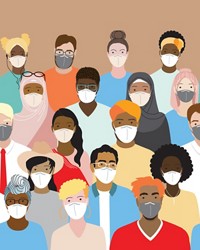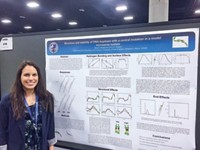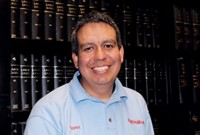Advertisement
Grab your lab coat. Let's get started
Welcome!
Welcome!
Create an account below to get 6 C&EN articles per month, receive newsletters and more - all free.
It seems this is your first time logging in online. Please enter the following information to continue.
As an ACS member you automatically get access to this site. All we need is few more details to create your reading experience.
Not you? Sign in with a different account.
Not you? Sign in with a different account.
ERROR 1
ERROR 1
ERROR 2
ERROR 2
ERROR 2
ERROR 2
ERROR 2
Password and Confirm password must match.
If you have an ACS member number, please enter it here so we can link this account to your membership. (optional)
ERROR 2
ACS values your privacy. By submitting your information, you are gaining access to C&EN and subscribing to our weekly newsletter. We use the information you provide to make your reading experience better, and we will never sell your data to third party members.
Careers
Movers And Shakers
Honduras
Undergrad Stefannie Corea epitomizes the next generation of connected, global chemists
by Arlene Goldberg-Gist
December 19, 2011
| A version of this story appeared in
Volume 89, Issue 51

At 22, Stefannie Corea is close to the average age of the Honduran population. But in other ways, she’s far from average.
Currently a full-time undergraduate student studying chemical engineering at the National Autonomous University of Honduras (UNAH), in Tegucigalpa, Corea—who is fluent in English—voluntarily translates from English to Spanish as many scientific articles that are relevant to her peers as she can. Almost none of her classmates speak English, Corea notes.
Honduras, which is slightly larger than Virginia, is one of the poorest countries in the Western Hemisphere. Two-thirds of the Honduran population lives in poverty, and the estimated per capita gross domestic product in 2010 was $4,200, compared with $47,200 in the U.S., according to the CIA World Factbook.
With two professional parents, Corea has privileges not available to a majority of Honduras’ young people. She is acutely aware of this and is both grateful and conscious that she’s a role model to her two younger siblings, ages 20 and 16. Corea’s father, Jorge, is a civil engineer specializing in design and construction. He also holds a position at UNAH and is the cofounder of AISLAPUR, an eco-friendly coatings company. Corea’s mother, Leyli González, a pharmaceutical chemist, is a technical director with Infarma, a pharmaceutical lab. Corea calls her parents “the greatest mentors of all.”
Corea’s ninth-grade science teacher sparked her interest in chemical engineering by showing her “how versatile a ‘ChemE’ can be. One day you may invent something and the next day, control an industrial process,” Corea says. “I admire the ability a chemical engineer has to solve what appears to be unsolvable. As a chemical engineer, I would be able to discover and apply new technologies which could simplify and improve human lives, and especially work toward the development of my country.”
Lab facilities at her university are not ideal. “We usually don’t have the reagents we might need for a practice; some are contaminated or have expired,” she says. About three years ago, an explosion that Corea calls “minor” occurred at the university’s chemistry lab. The entire building had to be closed and repaired because of contamination with reagents, delaying the little laboratory time that Corea and her classmates had anticipated. The facility just recently reopened.
UNAH, founded in 1847, is the only place in Honduras to get a chemical engineering degree, according to Corea, but master’s degrees and Ph.D.s are not offered in either chemical engineering or chemistry. The chemical engineering department consists of about 300 undergraduates, and third- and fourth-year classes and labs tend to be very crowded, she says. Corea says she would like to continue her studies abroad but is limited by the lack of financial aid for international students. She’s still undecided as to the area of expertise she should master, but she’s enamored with the food industry and is also considering petrochemicals. “I’d love to work at Hershey Co.,” Corea says.
If the years ahead work out for Corea as she envisions them, she would like to work in either the U.S. or Argentina. “Both countries,” she explains, “offer a wide range of opportunities in areas in which I could develop myself as a professional.”
Later, she says, “I would want to return to work in Honduras and contribute to its development.” She definitely sees a teaching role in her future, she adds.
Corea is a member of both the American Chemical Society and the American Institute of Chemical Engineers. As a member of an AIChE student chapter, she recently attended the institute’s annual student conference in Minneapolis thanks to a travel grant, a donated hotel room from a sister chapter at Mississippi State University, and a little parental help. She hopes that through ACS, she can find out about other opportunities for internships, co-ops, study abroad, and scholarships.
At the end of this International Year of Chemistry, it is fitting to profile Corea, who epitomizes the next generation of global chemists, one who is already expanding her horizons through association memberships, travel to meetings, social networks, and, of course, hard work.






Join the conversation
Contact the reporter
Submit a Letter to the Editor for publication
Engage with us on Twitter